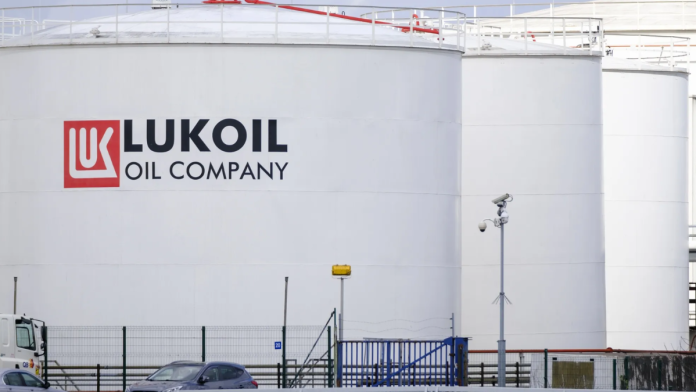Russia is expected to lose around $50 billion every year as new oil-related sanctions hit its energy sector. The impact comes just as one of its largest private oil companies, Lukoil, begins selling off its international businesses. The sanctions, announced recently by the United States, have restricted Russian oil trade and forced companies to make major changes in how they operate.
Officials say these losses equal almost $5 billion every month, showing how deeply the sanctions are cutting into Russia’s oil earnings. The measures are part of a broader effort to reduce the country’s income from energy exports, which are its main source of foreign money.
Despite the restrictions, global oil markets remain stable. Experts say that even with Russia’s shrinking exports, there is no shortage of oil supply worldwide. This means other countries have been able to step in and fill the gap left by Russian crude.
Lukoil’s Global Exit After Sanctions
Privately owned Lukoil, one of Russia’s biggest oil companies, has decided to sell off all its international assets. The buyer is Gunvor Group, a large energy trading company based in Switzerland. This sale includes Lukoil International GmbH, a major division located in Vienna that controls more than 100 subsidiaries in over 50 countries.
The deal also covers Litasco, a Lukoil-owned trading arm that operates from Geneva and Dubai. These companies handled much of Lukoil’s oil trading outside Russia, meaning the sale marks a complete retreat from the international stage.
Sanctions have made it increasingly difficult for Russian companies to do business abroad. Many banks and trading partners have stopped working with them, and international regulators have tightened restrictions on oil shipments and payments. For Lukoil, continuing global operations had become nearly impossible under these conditions.
UK targets Russian oil giants and Nayara Energy in new sanctions aimed at cutting Kremlin revenue
Gunvor’s Strategic Role in the Global Energy Market
Gunvor Group, the buyer of Lukoil’s foreign assets, is one of the world’s largest independent oil traders. The company gained prominence by moving oil from Russia and neighbouring countries to world markets. Over the years, it has expanded globally and diversified its portfolio.
Today, Gunvor deals not just in crude oil but also in refined fuels, natural gas, liquefied natural gas (LNG), and electricity trading. It also owns vital infrastructure like pipelines, refineries, and storage terminals.
While Gunvor has historical connections to Russian oil trade, in recent years it has worked to distance itself from Russia and strengthen its global profile. The purchase of Lukoil’s overseas assets could help it expand further, particularly in Europe and the Middle East.
The company is privately owned, which allows it to make quick business decisions without the scrutiny faced by publicly listed firms. This flexibility has helped it become one of the biggest players in the global commodities market.
Fueling the frontlines — Ukraine’s drone assaults cripple 20% of Russia’s oil capacity
Germany’s Moves on Rosneft and the Wider Impact
At the same time, discussions are underway in Germany over possibly nationalising Russian state-owned oil company Rosneft’s local assets. One key operation is the Schwedt refinery near Berlin, which supplies most of the region’s fuel. The facility plays a critical role in Germany’s energy network.
Reports suggest that Rosneft’s German holdings could be worth about $7 billion, though some officials believe the true value is much higher. If nationalisation happens, it would mark another significant setback for Russia’s energy influence in Europe.
The combination of sanctions, asset sales, and government takeovers is steadily reshaping the energy map. Russia’s oil industry, once a major global force, is now facing both financial losses and reduced international reach.
Meanwhile, Ukraine and its allies continue to call for tougher measures to cut off more of Russia’s oil revenue. They argue that these sanctions are beginning to weaken the financial foundation that supports the country’s energy exports and state budget.
As the situation unfolds, billions of dollars are at stake each year, and the decisions being made now will continue to shape global energy trade for years to come.


